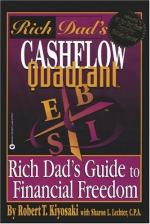|
This section contains 7,852 words (approx. 27 pages at 300 words per page) |

|
SOURCE: Sukehiro Hirakawa, "Chinese Culture and Japanese Identity: Traces of Po chü-i in a Peripheral County," in Tamkang Review, Vol. XV, Nos. 1-4, Autumn 1984-Summer 1985, pp. 201-19.
In this essay, Hirakawa discusses Po Chü-i's influence on Japanese nationalism and the relationship between that nationalism and the assimilation of Chinese culture during the T'ang dynasty.
The word "nationalism," with its various Japanese equivalents, has been associated in many Japanese minds, as well as in Western minds, with nationalistic wars which Japan fought within the time span of fiftyone years: from 1894 to 1945. Japan fought against China in 1894-95, against Russia in 1904-05, entered World War I in a secondary role, and played an important "villian's" role in World War II. Westerners talk a great deal of the Japanese ultranationalism of the war years. Their knowledge of Japan seems almost exclusively drawn from the World War II experience, so...
|
This section contains 7,852 words (approx. 27 pages at 300 words per page) |

|


